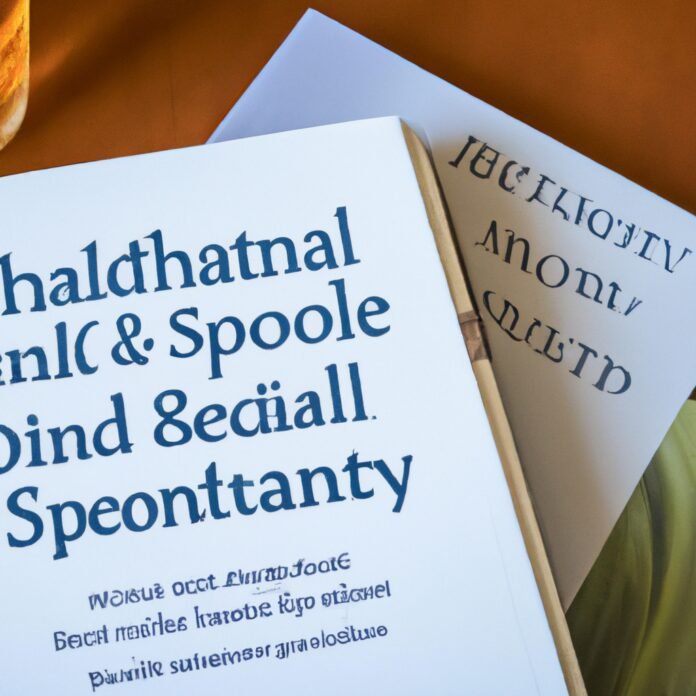As our elder population continues to expand, the need for holistic approaches to elderly health becomes ever more evident. Such approaches are rooted in the belief that mind, body, and spirit must be in alignment in order to achieve optimal health and wellness. Holistic approaches to elderly care not only focus on physical symptoms, but also encompass emotions, mental clarity, and spiritual well-being. With this in mind, the following article seeks to explore how meaningful integration of these three domains can ultimately lead to improved health, quality of life, and greater happiness for our most elderly loved ones.
1. Holistic Approaches for Elderly Health: Mind, Body and Spirit
Leading a healthy life is important at every age, especially during old age. As we age, the human body undergoes a series of changes that affects our mobility, stamina, and capacity to perform daily activities.
Therefore, proactive care is essential. A balanced combination of a holistic approach to health, which targets the mind, body and spirit, can enable the elderly to live their life to its fullest extent.
Mind: Intellectual pursuits can stimulate the mind and help keep one’s memory sharp. This can be as simple as learning how to use a new technology device, reading a new book or writing down daily reflections and insights. Social activities that require mental stimulation, such as playing a board game or card game, are also beneficial for mental health.
Body: Keeping the body fitted and active is also essential for elderly care. Regular physical activity can help promote heart health, joint flexibility, and overall mobility. Pursuits like taking brisk walks, doing household chores such as gardening, or joining a yoga class can all help. Additionally, eating a nutrient-rich diet filled with foods containing calcium and vitamin-d is also important for maintaining the body’s health.
Spirit: An important aspect of elderly care is to take care of one’s emotional and spiritual wellbeing. Activities such as group meditation, prayer, or deep reflection can help elderly people connect with their inner peace and boost their confidence and sense of self. Additionally, connecting with the outdoor environment or other hobbies, such as joining a choir, can help the elderly to find joy in the present moment.
2. Understanding the Interconnectedness of Health, Well-Being and Quality of Life
We all can benefit from understanding the interconnectedness of health, well-being, and quality of life. When these three elements are in sync, our overall well-being stands to improve in very powerful ways.
Health: While the physical aspect of health may be one of the first things that come to mind, it is important to recognize the interdependence of physical and mental health. Eating healthy meals, getting regular exercise, taking medications if necessary, and engaging in regular check-ups with a doctor, are all important to maintain physical health. Regular talk therapy sessions or other forms of therapy, may also be important ways to look after one’s mental health.
Well-being: Leading a life that fulfills emotional, social, spiritual, occupational, financial, community, and environmental needs provides an overall sense of well-being. These areas of life often overlap, as seen in the examples below:
- Connecting with like-minded people through work, volunteering, or other leisure activities can fill emotional and social needs
- Taking time to renounce and reflect on your beliefs can bring spiritual connection, while also providing a sense of inner peace
- Actively seeking out economic opportunity can provide financial stability and career satisfaction
- Engaging in activities that benefit multiple stakeholders, such as giving back to one’s community, can bring a deep sense of satisfaction
- Taking care of our environment is not only important for the health of the planet, but it also brings a deep sense of gratitude and purpose
Quality of Life: When the components of health and well-being are working together, the overall quality of everyday life increases. Activities like spending time with friends and family, expressing creativity, engaging in meaningful work, and having enough economic stability for basic needs, all come together to make for a more meaningful life. Developing a system of self-care, and taking steps to maintain physical and mental health, are two keys ingredients in having a high-quality life.
3. Promoting Optimal Health and Wellness Through Mind, Body and Spirit Connections
Optimal health and wellness often involves connecting each element of the mind, body, and spirit. Here are three ways you can promote an overall sense of wellbeing.
- Nourish the Mind. Nurture your mental health with practices like meditation and journaling. Improve your cognitive functions through activities like puzzles and crosswords. Read inspiring books and find creative ways to reduce your stress levels. It’s important to focus on embodying positive thought.
- Stay Physically Active. Exercise is essential for keeping your body healthy and strong. Make a commitment to regular physical activity, even if that means something as simple as walking around your neighborhood. You can also look into more intensive fitness routines or take up a sport.
- Balance Your Spiritual Life. The spiritual side of your health goes beyond religious faith. Find out what meaningful expressions of spirituality work best for you and make them part of your daily routine. This might include creative expression, nature walks, or other activities that helps bring peace and balance to your life.
Put your wellbeing first by taking the time to establish connections between the three aspects of your existence. Nurture your mind, stay physically active, and balanced your spiritual life. Building strength in each area will bring you closer to an overall healthier and happier lifestyle.
4. Identifying and Enhancing Strengths to Support Healthy Aging
Having an awareness of one’s strengths and how to maximize them can be an incredibly valuable tool in promoting health and wellness. Identifying and enhancing these strengths can make a big difference as one ages.
Taking some time to examine one’s strengths and build on them can add value to the journey of aging. A few strengths that are especially pertinent for aging include cognitive abilities, physical abilities, and community-mindedness.
- Cognitive Abilities: As one ages, maintaining cognitive health is crucial for sustaining quality of life. Retaining cognitive abilities such as memory, reasoning, and problem-solving can be promoted through activities like crossword puzzles, reading, and learning a new language or skill.
- Physical Abilities: Exercising regularly and eating healthy are important at any age, but may become even more necessary as one ages. Strength-training and maintaining aerobic capacity are especially important.
- Community-Mindedness: It is not uncommon for one to feel less connected to their community as they age, but becoming involved in a club, hiking group, or church can help one stay engaged. Talking to neighbors and volunteering can also be helpful.
Practicing healthy aging is highly reliant on healthy lifestyles, but maintaining and enhancing strengths can make all the difference. Utilizing the strengths mentioned above, as well as personal strengths, can help to make aging a more rewarding experience.
5. Creating a Renewed Sense of Purpose With Holistic Approaches to Elderly Health Management
As we age, it becomes increasingly important to take care of our physical and mental health. Holistic approaches to Elderly health management can help us create a renewed sense of purpose in our later years. Here are five ways to proactively manage physical and mentally health in our senior years:
- Make physical activity a priority. Regular exercise, even a simple walk around the neighborhood, can help maintain muscle strength, flexibilities, and balance. Pilates and yoga can also be useful for seniors looking for low-impact physical activities.
- Prioritize nutritious dietary choices. Eat plenty of fruits, vegetables, and whole grains to provide fuel for healthy body functions. Try to reduce or limit processed and sugary foods.
- Engage in social activities. Write to friends and family, schedule regular visits, join an exercise or dance class, or look into volunteering opportunities. Doing activities together with others can help keep us connected and foster strong social and family relationships.
- Pursue hobbies and interests. Reading books, working on home improvement projects, listening to music, crafting, playing board or card games can bring joy and decrease stress levels.
- Focus on mental health. It’s important to talk to a doctor about managing existing mental health conditions or seek counseling if feelings of depression, anxiety, or loneliness arise. Meditation can also be beneficial for seniors looking to achieve a mindful state and practice relaxation.
Taking proactive steps like the ones mentioned here allow seniors to create lifelong habits that will promote emotional well-being and make them feel more fulfilled and productive. With a renewed sense of purpose, we can live life to the fullest in our elder years.
Elderly health doesn’t have to be a tedious experience. Holistic approaches to health are not only beneficial to our physical well-being, but they are important for our overall balance and wellbeing. Through a combination of emotional, physical, mental and spiritual healing, we can empower our elderly loved ones to take a more active role in their health and extend the length and quality of their lives.

